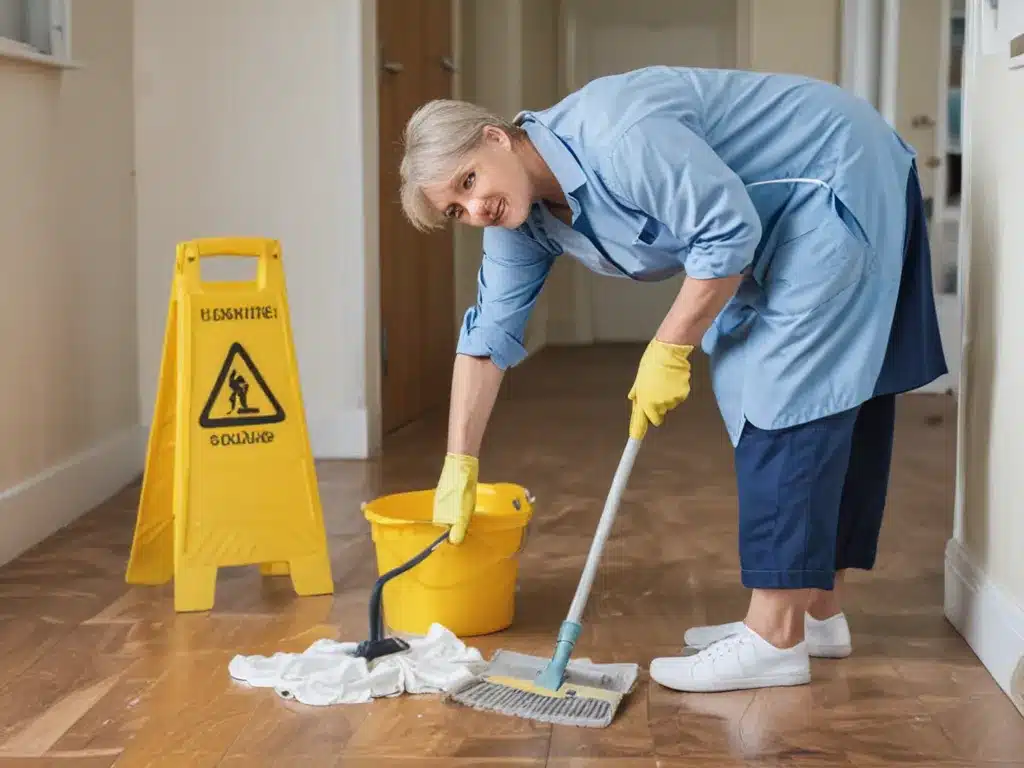Introduction
Providing specialist cleanup services for vulnerable groups such as the elderly, disabled, or those with health conditions requires sensitivity, care, and proper training. As the owner of a cleanup company specializing in this area, I aim to ensure these clients receive respectful, dignified service to meet their unique needs.
Assessing Client Needs
Before beginning any cleaning job for a vulnerable client, I conduct a thorough in-home assessment. I ask questions to understand their specific requirements. For example:
- What areas of the home need cleaning?
- Are there any mobility issues or health conditions to be aware of?
- Are there any special supplies or equipment needed to clean safely and comfortably?
- Are there any specific tasks the client cannot do themselves and needs help with?
I also inspect for safety hazards like loose rugs or cords, and note any areas requiring extra care like sanitizing medical equipment. Being attentive and proactive helps provide customized care.
Staff Training
My staff undergo specialized training to work sensitively with vulnerable groups. Topics include:
- Disability awareness – properly assisting clients with limited mobility or conditions like dementia.
- Infection control – following protocols to sanitize medical equipment and high-touch surfaces.
- Communication skills – speaking respectfully, listening to needs, explaining services.
- Safety – ensuring unsafe products or practices are not used around vulnerable occupants.
Ongoing training reinforces these skills. I shadow staff on initial visits to coach appropriate interactions.
Providing Person-Centered Care
During service, my team focuses on providing person-centered care for each client’s needs:
- Introducing ourselves and explaining what will be done.
- Working around the client’s schedule – pausing for medical needs or rest periods.
- Asking for consent before moving or touching personal items.
- Maintaining a clean, orderly environment to minimize stress or confusion.
- Sanitizing surfaces thoroughly to protect fragile immune systems.
- Listening attentively to any needs or feedback.
I check-in throughout cleanings to ensure quality service.
Adapting Equipment and Supplies
Specialized equipment and supplies help us accommodate vulnerabilities:
- Lightweight vacuums easier to maneuver around furniture.
- Ergonomic tools to reduce strain for those with mobility limitations.
- Non-toxic cleaners suitable for chemically sensitive clients.
- Disinfectants to sanitize healthcare equipment and high-touch areas.
- Scent-free products for those with respiratory sensitivities.
I invest in products allowing us to clean thoroughly while minimizing risks for occupants.
Communication and Feedback
Maintaining open communication is key. I touch base after initial and follow-up visits to ensure clients are satisfied and address any concerns.
I also provide contact methods like phone, email and an online portal to easily reach us 24/7. Feedback forms allow rating services and noting improvements needed.
I review all feedback and make adjustments to continually improve care for vulnerable customers. Their comfort and safety are my top priorities.
Conclusion
Providing cleaning services for vulnerable populations carries great responsibility. With specialized training, person-centered practices, appropriate equipment and open communication, my company offers dignified, tailored care for these clients. Our seniors and those with disabilities or health conditions deserve nothing less.







